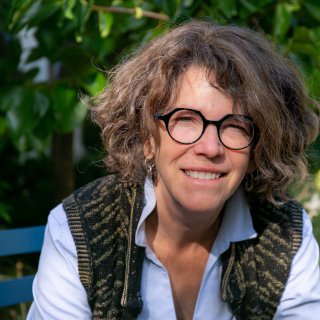Voices

Description
Tanya Marie Luhrmann is the Albert Ray Lang Professor of Anthropology at Stanford University, with a courtesy appointment in Psychology. Her work focuses on the edge of experience: on voices, visions, the world of the supernatural and the world of psychosis. She has done ethnography on the streets of Chicago with homeless and psychotic women, and worked with people who hear voices in Chennai, Accra and the South Bay. She has also done fieldwork with evangelical Christians who seek to hear God speak back, with Zoroastrians who set out to create a more mystical faith, and with people who practice magic. She uses a combination of ethnographic and experimental methods to understand the phenomenology of unusual sensory experiences, the way they are shaped by ideas about minds and persons, and what we can learn from this social shaping that can help us to help those whose voices are distressing. At the heart of the work is the sense of being called, and its possibilities and burden. Dr. Luhrmann was named to the American Academy of Arts and Sciences in 2003, received a John Guggenheim Fellowship award in 2007 and elected to the American Philosophical Society in 2022. When God Talks Back (2012) was named a New York Times Notable Book of the Year and a Kirkus Reviews Best Book of the Year. It was awarded the $100,000 Grawemeyer Prize for Religion by the University of Louisville. She has published over thirty OpEds in The New York Times, and her work has been featured in The New Yorker, The New York Review of Books, The Times Literary Supplement, Science News, and many other publications. She is the author of Persuasions of the Witch’s Craft (1989), The Good Parsi (1996), Of Two Minds (2000), When God Talks Back (2012), Our Most Troubling Madness (2016), How God Becomes Real (2020), and is currently at work on a book entitled Voices.
Abstract
They are strange experiences—a voice whispered on the wind, a god who speaks from on high—but far more common than we think. At the beginning of most great religions lies a voice. Who hears such voices? I have spoken to hundreds of people, in many countries, who have heard voices, some only once, some more often. Most of these people are not psychiatrically ill. Some are. In this talk, I will discuss what we know about the difference between mad voices and sane voices, and what non-mad people can learn to experience some of their own thoughts as not their own, and not inside them. I will also talk about the evidence that the way we think about voices changes our experience of them—and may soften the impact of psychosis. Most fundamentally, I will argue that voices teach us something about consciousness: about how we humans feel our thoughts, about our contradictory intuitions about our own thoughts, and how these contradictions—and the way they are elaborated or ignored by local culture—lie at the heart of hearing voices.
This lecture will take place at 3:30 pm in Psychology 1312 on the UCSB campus and is free and open to the public. Refreshments and a post-lecture discussion will also follow this lecture.
